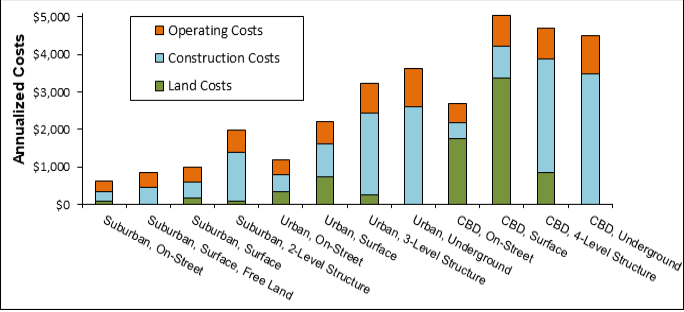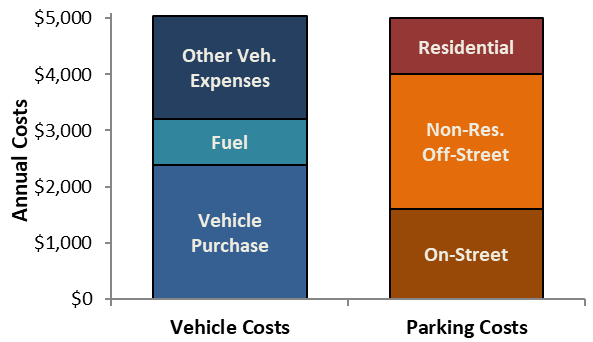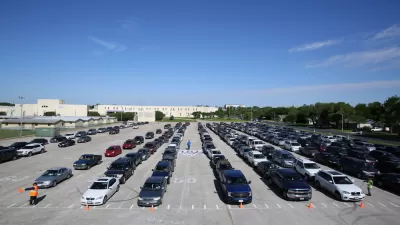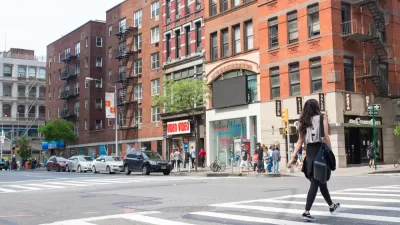Every time somebody purchases a vehicle they expect governments and businesses to provide parking for their use. These facilities are costly. For every dollar motorists spend on their vehicles somebody spends about a dollar on parking.

Parking facilities are a critical part of a transportation system: vehicles are typically parked about 23 hours per day and require parking at each destination. These facilities impose large economic, social and environmental costs. Information on these costs is important for policy and planning analysis.
Parking is the dark matter of the urban universe: it significantly affects development patterns, travel activity, affordability, livability and environmental impacts, but these impacts are virtually invisible. In the past, planners seldom considered the total costs, subsidies and inequities of decisions such as how much off-street parking to mandate or how on-street parking should be mandated and priced. However, this is starting to change.
A new open access article, Comprehensive Parking Supply, Cost and Price Analysis published in Transportation Research Procedia estimates the number of parking spaces per vehicle, their costs and prices. It summarizes a longer report of the same name.
New research improves our understanding of these costs. In the past parking supply (the number of parking spaces built in an area) was estimated using bottom-up methods: researchers simply assumed that each vehicle has about one parking space at home, one at work plus a share of spaces at other destinations, resulting in two to three spaces per vehicle. However, recent field surveys indicate that North American communities typically have three to eight parking spaces per vehicle, including many that are seldom-used but government-mandated. Their annualized costs, including land, construction and operating expenses, typically range from about $600 for basic surface parking on inexpensive land to more than $4,000 for high-amenity structured parking. Overall, their costs are estimated to average about $1,000 annually per space or $5,000 per vehicle-year, totaling more than a trillion dollars per year in the U.S.
Typical Annualized Parking Facility Costs

For every dollar motorists spend on their vehicles somebody spends about a dollar on parking. Most parking costs are external, increasing taxes, rents and retail prices. This is economically inefficient and unfair since it increases total parking and traffic costs, and forces households that drive less than average to subsidize higher-mileage motorists. This research justifies more efficient parking management which reduces the parking supply needed to serve demands.
Comparing Vehicle and Parking Costs

This research has important implications. It indicates that vehicle parking is much more costly, so efficient parking management and vehicle travel reduction policies provide much larger benefits, than generally recognized. Current policies are grossly unfair because they force households that own fewer than average vehicles to subsidize parking for those that own more than average vehicles, in part by increasing housing costs. Excessive parking also contributes to sprawl and impervious surface area, and therefore stormwater management costs and heat island effects.
More comprehensive information on these factors can result in better planning decisions.
FULL STORY: Comprehensive Parking Supply, Cost and Price Analysis

Maui's Vacation Rental Debate Turns Ugly
Verbal attacks, misinformation campaigns and fistfights plague a high-stakes debate to convert thousands of vacation rentals into long-term housing.

Planetizen Federal Action Tracker
A weekly monitor of how Trump’s orders and actions are impacting planners and planning in America.

In Urban Planning, AI Prompting Could be the New Design Thinking
Creativity has long been key to great urban design. What if we see AI as our new creative partner?

King County Supportive Housing Program Offers Hope for Unhoused Residents
The county is taking a ‘Housing First’ approach that prioritizes getting people into housing, then offering wraparound supportive services.

Researchers Use AI to Get Clearer Picture of US Housing
Analysts are using artificial intelligence to supercharge their research by allowing them to comb through data faster. Though these AI tools can be error prone, they save time and housing researchers are optimistic about the future.

Making Shared Micromobility More Inclusive
Cities and shared mobility system operators can do more to include people with disabilities in planning and operations, per a new report.
Urban Design for Planners 1: Software Tools
This six-course series explores essential urban design concepts using open source software and equips planners with the tools they need to participate fully in the urban design process.
Planning for Universal Design
Learn the tools for implementing Universal Design in planning regulations.
planning NEXT
Appalachian Highlands Housing Partners
Mpact (founded as Rail~Volution)
City of Camden Redevelopment Agency
City of Astoria
City of Portland
City of Laramie




























